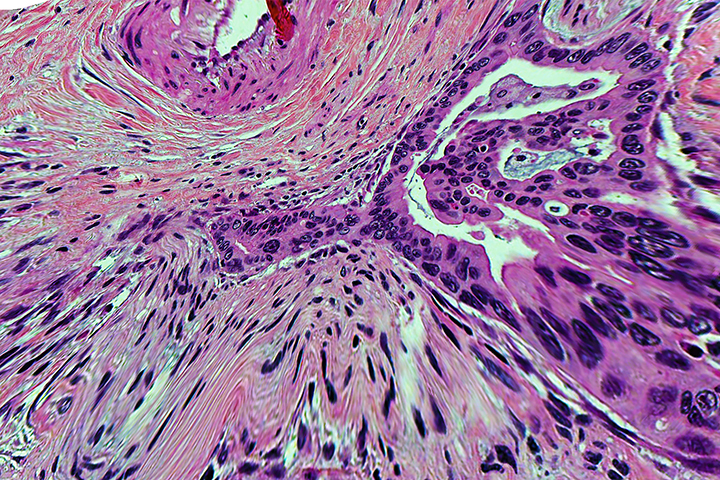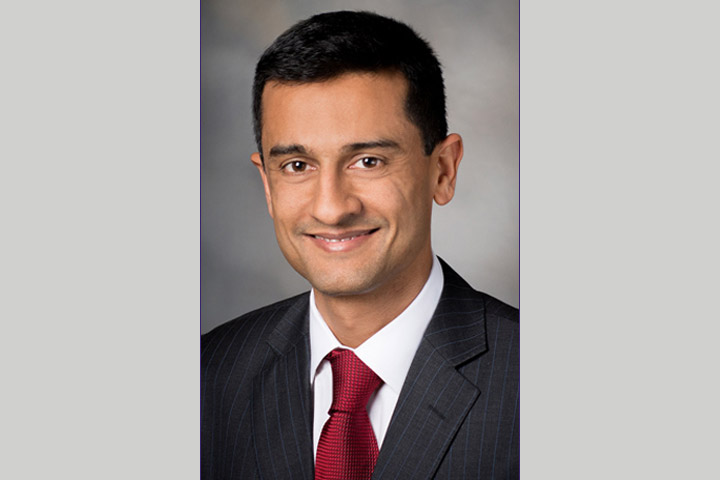What To Do When Newly Diagnosed with Pancreatic Cancer

Getting a diagnosis of cancer is never easy.
In 2017, more than 53,000 Americans will be diagnosed with pancreatic cancer. Most often, these patients will have advanced disease. Yet pancreatic cancer experts are hopeful these patients will benefit from new discoveries and new approaches to treatment.
Although a diagnosis of pancreatic cancer is overwhelming, there are steps that you—and those who love you—can take right now that can positively affect your life.
Know that You Are More Than a Statistic
One of the most important things a pancreatic cancer patient—or someone close to them—can do is to learn all they can about the specifics of the cancer, and how best to treat it.
Although long-term survival statistics for pancreatic cancer are lower than that of breast cancer, for example, that does not mean that you should give up hope.
“There is always hope and the first thing I would say to a patient diagnosed with this disease is don’t accept the sentiment of resignation that pancreatic cancer is impossible to treat,” says gastrointestinal oncologist Allyson Ocean, M.D., of New York-Presbyterian Hospital/Weill Cornell Medical Center and Associate Professor of Clinical Medicine at Weill Cornell Medical College of Cornell University. “We are making progress and every patient is an individual, not a statistic.”
Some patients may want to learn everything about the disease, and go into overdrive doing research. Others may want someone else to help.
“If a patient isn’t comfortable about having too much information, he or she should designate a trusted friend or family member to help get that information and to help with decision making,” says Jeanie Wyckhouse, R.N., an oncology nurse navigator with University Hospitals Cleveland Medical Center, in Cleveland, Ohio.
Know your Medical Team
There is a large body of evidence showing that a multi-disciplinary team approach to pancreatic cancer care is ultimately best for patients. This team approach includes your primary care physician and experts in oncology focused on gastrointestinal (GI) diseases like pancreatic cancer, nursing, pathology, radiation, nutrition, pain management and, if the cancer is early stage, surgery. Your team may also include professionals who provide spiritual and wellness counseling.
“The team approach is absolutely vital to a patient’s well-being,” says Wyckhouse. “I want a newly diagnosed patient to take names and to know who is on their team.”
Although Wyckhouse acts as a patient advocate, helping make appointments and answering questions, for example, not all cancer care centers may take the same approach. That does not mean, however, that newly diagnosed patients will be forced to navigate care on their own.
“No matter where you are getting care there will always be people you can turn to for help,” she says. “Don’t be afraid to ask for more help where you are getting treated.” In many instances, these experts can help identify local community resources and other advocacy groups that can also provide help, she says.
It’s also clear that patients do better when side effects of the disease are managed better, says Ocean. “When pain is managed well, when nutrition is managed well, and when psycho-social needs are being addressed, patients have a better quality of life and outcomes,” she says. “This team approach to care is absolutely one of the most important aspects of care.”
Consider a Clinical Trial
Years ago, clinical trials were considered a last resort for people who were out of treatment options. Today, many pancreatic cancer patients are choosing clinical trials early in their treatment process.
For pancreatic cancer patients, clinical trials may offer the best option for treatment. In fact, national treatment guidelines in the United States recommend that patients with pancreatic cancer enroll in a trial. “The reason is that patients may truly benefit from new, investigational approaches,” says Ocean. Patients who participate in a trial also make treatment progress a reality.
Research does suggest that pancreatic cancer patients participating in clinical trials report better outcomes than those receiving the same treatment outside of clinical trials, according to a study published in the Journal of Gastrointestinal Oncology in April 2016.
There are many ongoing clinical trials for pancreatic cancer. And more discussion about clinical trials between patients and doctors and patients and caregivers may increase treatment and trial participation, and may improve patient and caregiver priorities of quality of life, extension of survival, and symptom management, the researchers say.
Another reason for clinical trial participation is patient empowerment, says Wyckhouse. “Patients who participate in trials know they are taking an active, rather than passive, role in their care, and that can have very positive effects on how a person feels.
Get a Second Opinion
Pancreatic cancer is a complex disease. “Second opinions can help patients and their loved ones feel more confident that their cancer has been correctly diagnosed and staged,” says Ocean, adding that evaluating the stage of pancreatic tumors can be difficult. “It’s very important for people to find experts in diagnosing pancreatic cancer, who also know and have access to the latest information about its treatment,” she says.
Getting a second opinion also may result in “experts finding better, more advanced or even more aggressive operations,” says surgeon Keith Millikan, M.D., The Steven G. Economou Professor of General Surgery and Vice Chairperson, Clinical Affairs at Rush Medical College in Chicago, Illinois.
For example, although only about 15 to 20 percent of newly diagnosed pancreatic cancer patients may be eligible for surgery, options are expanding to include a broader range of patients, including those with borderline resectable cancers and those with benign precursor lesions, says Millikan. “Another evolving change is the manner in which we perform surgery,” he says, citing technological capabilities such as minimally invasive techniques using laparoscopic and robotic approaches.
“I think it’s worth a patient’s peace of mind to know they have explored options and opinions,” says Millikan. “Often we may tell a patient the plan that was put in place for them is great and not different than something we would do. But, it’s those other times that may make a difference in outcomes.”






